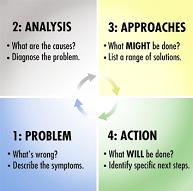The U.S. military presence in Japan has provided great stability in a region of uncertainty. In recent years, the importance of the U.S. military in Asia has been underscored by continuing volatility in North Korea, the growth of terrorist organizations and pirates, and expanded human trafficking.[1] A continued relationship between the Japanese and the U.S. military is vital to regional stability, the protection of maritime commerce routes, and the countering of proliferation of weapons of mass destruction, terrorism, piracy, and human trafficking.[2]
In the last thirty years, relations between local Japanese communities and the U.S. military have been strained, largely due to incidents occurring in the local communities involving off-duty military personnel. According to one source, over 4700 crimes have been committed in Japan by U.S. military personnel since 1972, causing extensive anti-American sentiment throughout the country.[3] The conflicts between U.S. military bases and local Japanese communities have found resolution at the highest levels of government. In the process, the interests of several parties have been lost. Perhaps a new method of dispute resolution should be considered: namely, mediation.
